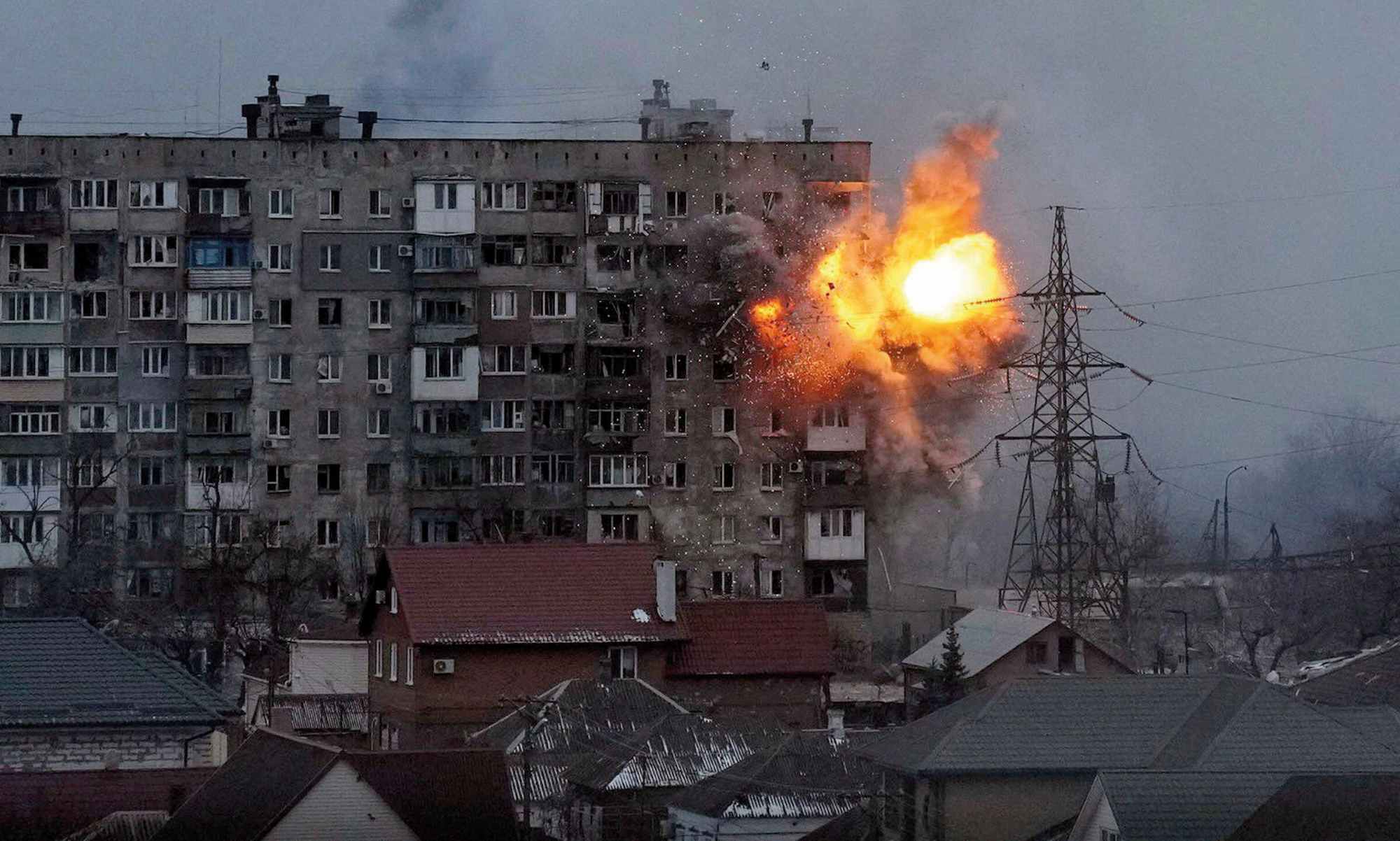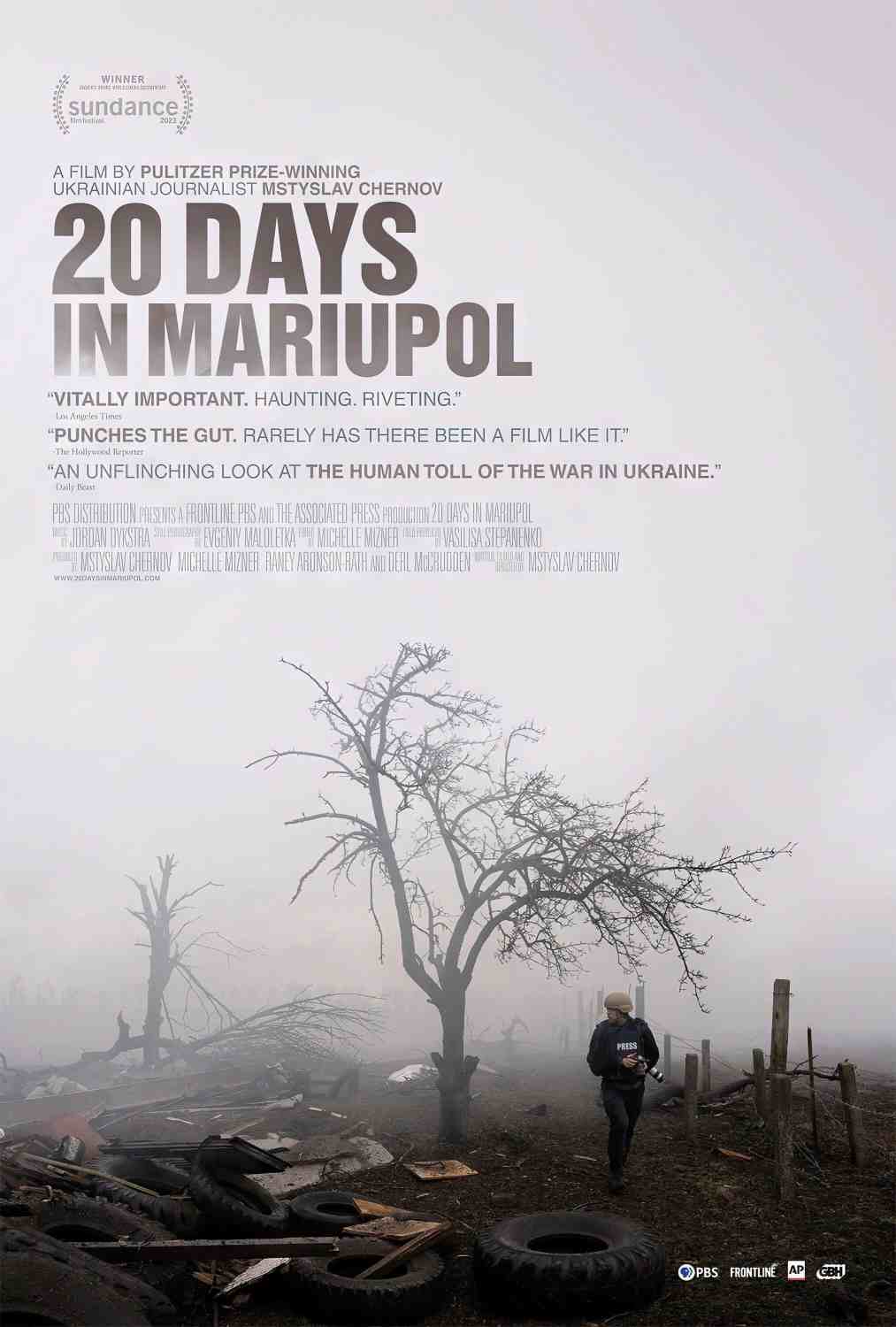A stark reminder of the human cost of Putin's war: Tom Randall reviews '20 Days in Mariupol'
A pregnant woman, Iryna Kalinina, is evacuated from a maternity hospital damaged by a Russian airstrike | Image by: Associated Press / Alamy Stock Photo
3 min read
A visceral and deeply personal account of the city’s first brutal days under siege, Mstyslav Chernov’s Oscar-winning documentary underscores the vital role of journalism in times of conflict
The constant churn of news bombards us with fleeting glimpses of war-torn cities, leaving names like Mariupol etched in memory without truly understanding the suffering they represent. 20 Days in Mariupol, directed by Ukrainian filmmaker Mstyslav Chernov, delves beyond the headlines, offering a visceral and deeply personal account of the city’s first brutal days under siege.
Chernov, a veteran of documenting Ukraine’s turbulent history, chooses Mariupol as his lens. The strategic port city, 30 miles from the border, quickly became a target for the invading Russian forces and Chernov, along with his crew, decides to stay and capture the unfolding tragedy.
 An apartment block is fired upon by a Russian tank | Image by: Associated Press / Alamy Stock Photo
An apartment block is fired upon by a Russian tank | Image by: Associated Press / Alamy Stock Photo
The film unflinchingly portrays the fear and uncertainty gripping Mariupol’s residents as the war’s reality sets in. Chernov’s camera captures their desperate attempts to grasp the situation and the agonising choice between staying or fleeing the impending chaos.
As the air raids begin, Chernov and his team attach themselves to Mariupol City Hospital No. 2 and film the innocent victims of Vladimir Putin’s aggression: a 16-year-old with his legs blown off while playing football with his mates; a toddler wheeled in with scalp wounds.
While undeniably harrowing, it’s precisely this unflinching portrayal that makes it essential viewing
The promised humanitarian corridors vanish, leaving Mariupol trapped and desperate. The dead pile up, sealed in black bags and unceremoniously bundled into mass graves. As one doctor poignantly observes: “War is like an X-ray: all human insides become visible. Good people become better; bad people, worse.”
Chernov doesn’t shy away from the desperation that takes hold. We witness the breakdown of social order as some Ukrainians resort to looting, highlighting the complex realities of war-torn societies.
 However, 20 Days in Mariupol is also a testament to the enduring spirit of humanity. The film showcases the unwavering dedication of the doctors and nurses at Hospital No. 2, battling to save lives amidst dwindling resources and constant bombardment.
However, 20 Days in Mariupol is also a testament to the enduring spirit of humanity. The film showcases the unwavering dedication of the doctors and nurses at Hospital No. 2, battling to save lives amidst dwindling resources and constant bombardment.
Beyond documenting the city’s plight, Chernov’s work underscores the vital role of journalism in times of conflict. His team risk their lives to film incoming Russian tanks and the results of air raids. Divided into short clips to be uploaded whenever they have a signal to transmit them, these snippets find their way onto global platforms, exposing the world to the horrors unfolding on Ukrainian soil and forcing difficult questions upon the international community.
The fate of Mariupol is a stark reminder of the devastating human cost of war. While 20 Days in Mariupol is undeniably harrowing, it’s precisely this unflinching portrayal that makes it essential viewing. By bearing witness to the film’s uncomfortable truths, we gain a deeper understanding of the tragedy and are compelled to confront the human cost of Putin’s war.
Tom Randall is Conservative MP for Gedling
20 Days in Mariupol
Director, writer, producer & cinematographer: Mstyslav Chernov
Broadcaster: Free to view on Channel 4 and to rent on selected digital platforms
